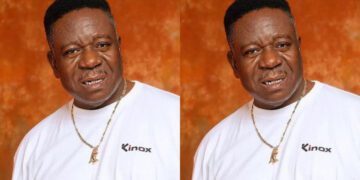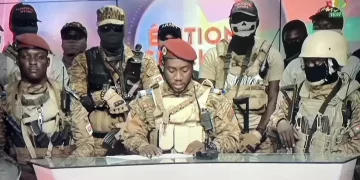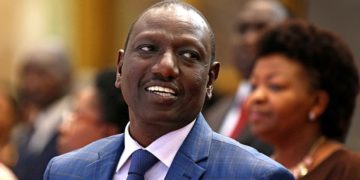[ad_1]

The DA says it is pleased the voices of “radical economic transformation” in the ANC were overlooked, resulting in the country approaching both the International Monetary Fund (IMF) and the World Bank to help the economy in dealing with the novel coronavirus.
On Tuesday evening, President Cyril Ramaphosa announced the country had approached several financial institutions, seeking funds for a R500 billion economic and social relief package aimed at mitigating the effects of the deadly pandemic on both the economy and the citizens of the country.
The country is in a race against time to slow down the spread of Covid-19, which has infected more than two million people across the globe. In South Africa, there have been 3 468 cases, and 58 deaths.
“It’s very clear to my reading of it that the president, Tito Mboweni (Finance Minister) and that particular school of thought within the ANC have won out over the more state-led ‘don’t go to the IMF at all costs’,” said the DA’s interim leader John Steenhuisen.
Steenhuisen made the comments at a virtual media briefing on Wednesday, where his party unpacked its reaction to the additional measures.
At odds
“There was certainly less radical economic transformation,” added Steenhuisen.
This was in reference to the different schools of thought or factions within the ANC, where one had been vehemently against the IMF, along with the privatisation of state-owned enterprises and calling for the nationalisation of the Reserve Bank.
Ramaphosa has often been seen as part of the faction more concerned with global markets and resistant to calls for major transformation in the country.
Many within the ANC and its alliance partners were at odds with approaching the IMF.
READ: Divide deepens in ANC over virus funding
Sharing his views on this, the DA’s Geordin Hill-Lewis agreed with Steenhuisen, saying this protected the pensions of many South Africans, though he said there were still concerns over the use of the president’s language, in that it appealed to that particular faction in the governing party.
“If our economy is to survive this and one day thrive again, the president has to stop equivocating with this radical faction,” said Hill-Lewis.
Militarisation of the state concerning
While the DA expressed support for the government’s current plans, which is a slightly different approach to when an extension of the lockdown was announced two weeks ago, it raised questions over plans to increase the amount of South African National Defence Force (SANDF) members on the ground.
On Tuesday, Steenhuisen posted a letter from the president to parliament informing it of this decision, which News24 confirmed as authentic.
READ: SANDF mobilised in one of the biggest deployment in the country’s history
“This will be the largest deployment of the SANDF in post-democratic South Africa,” said Steenhuisen.
He said the party was looking for more information on why such a decision was taken.
“This militarisation of our society and the state is a threat to our democracy, regardless of the circumstance under which it takes place. South Africans are owed an explanation,” said Steenhuisen.
He emphasised that transparency was required with regard to where they would be deployed, what their role would be, and how long soldiers were expected to patrol the country’s streets.
Right direction
The DA’s Siviwe Gwarube was also at the briefing and said the decision to allocate R20 billion towards the health response to the pandemic was a step in the right direction.
READ | Steenhuisen reported for tweeting Ramaphosa’s SANDF letter
The party had also established 10 key proposals, which should be the focus of the Covid-19 response. These include: building a test, trace and tracking capacity using community health workers, the filling of critical posts across the country, hospital capacity and managing, as well as enforcing the wearing of masks, among others.
“We are not going to beat this pandemic if we do not have a solid testing, tracing and tracking strategy in place,” she said.
She also said more money needed to be directed towards Gauteng, the Western Cape and KwaZulu-Natal to build the capacity of healthcare facilities, including primary and district healthcare systems, because they were under severe strain.
– Stay healthy and entertained during the national lockdown. Sign up for our Lockdown Living newsletter. Register and manage your newsletters in the new News24 app by clicking on the Profile tab

















